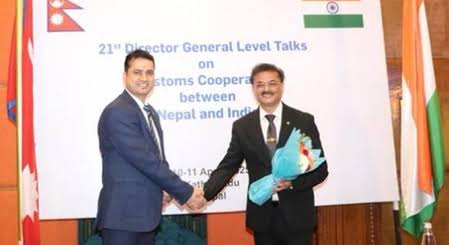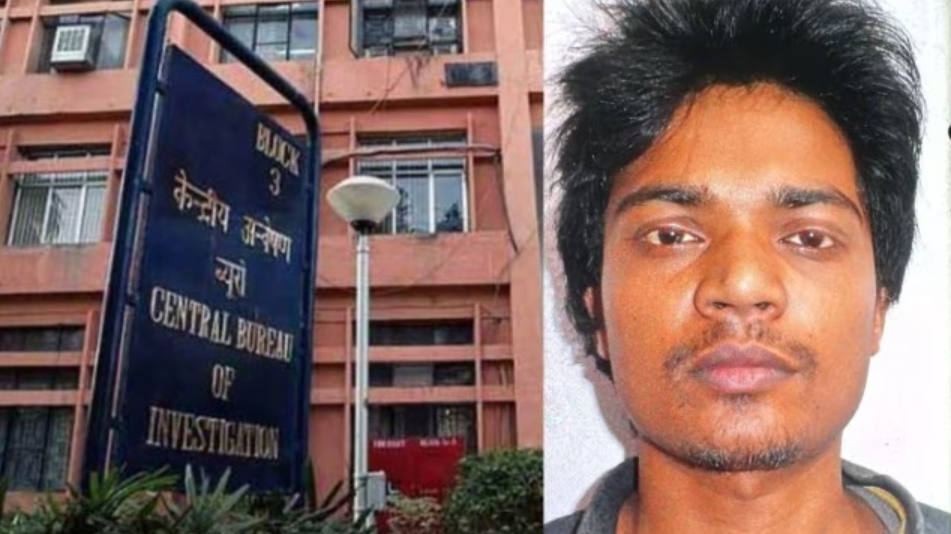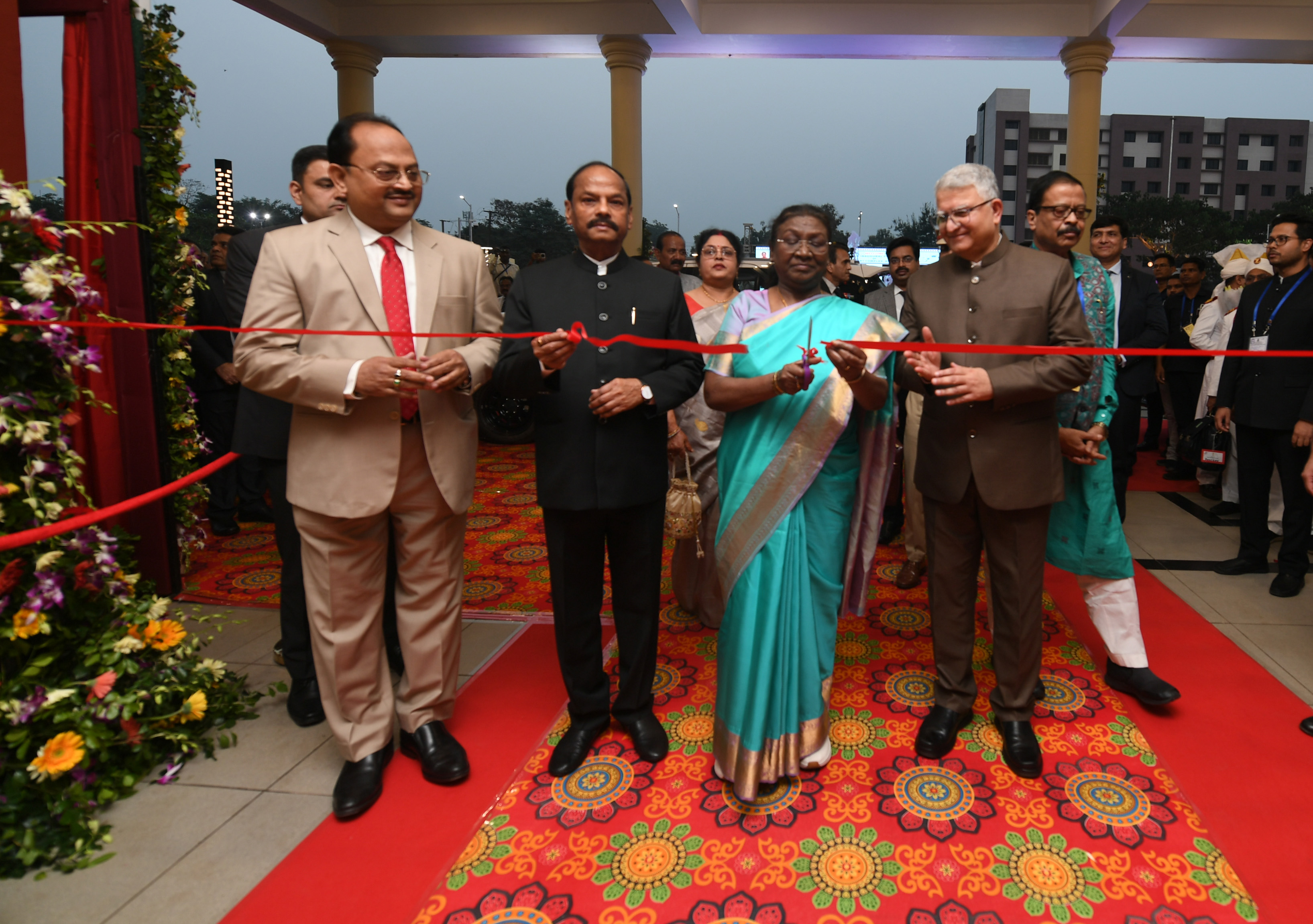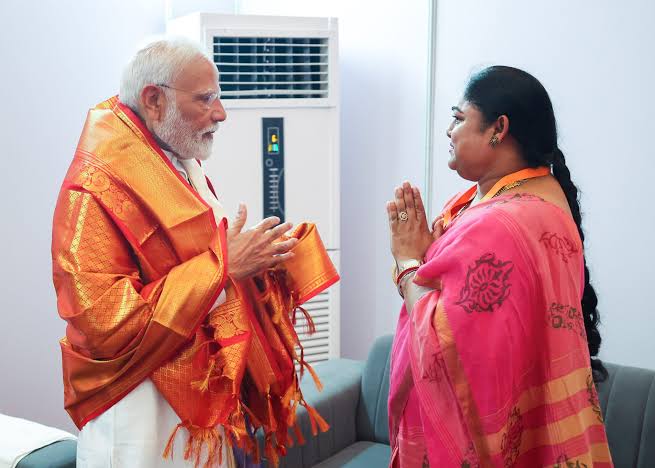In a spirit of mutual trust and cooperation, India and Nepal held the 21st Director-General Level Talks on Customs Cooperation in Kathmandu on April 10 and 11, 2025. The two-day dialogue served as a constructive platform for both nations to reaffirm their commitment to fostering smoother, more efficient, and secure trade operations across their shared border.
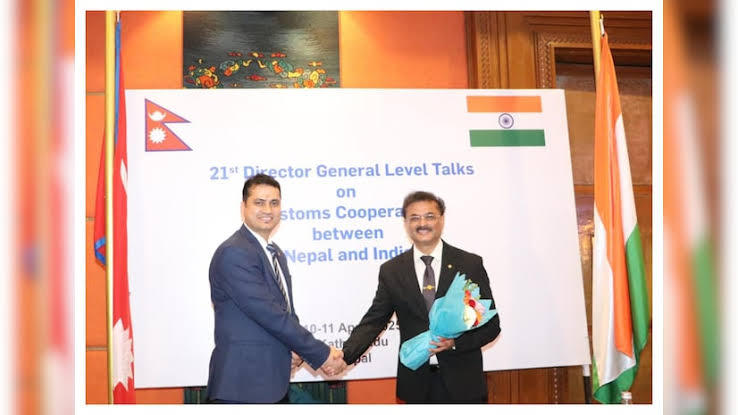 The Indian delegation was led by Mr. Abhai Kumar Srivastav, Director-General of the Directorate of Revenue Intelligence, while Mr. Mahesh Bhattarai, Director-General of the Department of Customs, headed the Nepali delegation. Discussions were broad-ranging, yet deeply focused, reflecting the longstanding and friendly relationship between the neighboring countries.
The Indian delegation was led by Mr. Abhai Kumar Srivastav, Director-General of the Directorate of Revenue Intelligence, while Mr. Mahesh Bhattarai, Director-General of the Department of Customs, headed the Nepali delegation. Discussions were broad-ranging, yet deeply focused, reflecting the longstanding and friendly relationship between the neighboring countries.
High on the agenda were shared efforts to combat smuggling and trans-border criminal activities, including the illegal movement of gold, narcotics, fake currency, and restricted goods such as e-cigarettes and certain types of agricultural produce. Both sides acknowledged the persistent threat posed by such activities and reaffirmed their resolve to work together closely, sharing intelligence and developing mechanisms to prevent unauthorised trade.
The meeting also saw positive deliberations on ongoing initiatives such as the Pre-arrival Exchange of Customs Data and the Electronic Origin Data Exchange System (EODES). The finalisation of the Customs Mutual Assistance Agreement (CMAA) and the use of the Electronic Cargo Tracking System (ECTS) for transit cargo were viewed as vital steps forward in modernising border trade processes.
Both India and Nepal placed strong emphasis on the importance of automation, digitisation, and the upgradation of border infrastructure to facilitate faster and more transparent transit procedures. Capacity building and knowledge-sharing programmes were highlighted as important contributions from India, with Nepal expressing gratitude for ongoing support extended by the Central Board of Indirect Taxes and Customs (CBIC) in training and upskilling its Customs officials.
These regular consultations have become a cornerstone of bilateral ties, not just for strengthening enforcement but also for enabling smoother legal trade, which holds immense economic value for both countries. As India remains Nepal’s largest trade partner and a key development ally under the ‘Neighbourhood First’ policy, these talks serve as a testament to the shared vision of prosperity, stability, and growth in the region.
The meeting concluded on a positive note, with both sides agreeing to explore the use of new technologies to streamline trade and tighten control against illicit activities. It was a reaffirmation of the enduring friendship between the two nations—rooted in history, enriched by shared values, and moving confidently toward a future of deeper economic cooperation and regional harmony.

